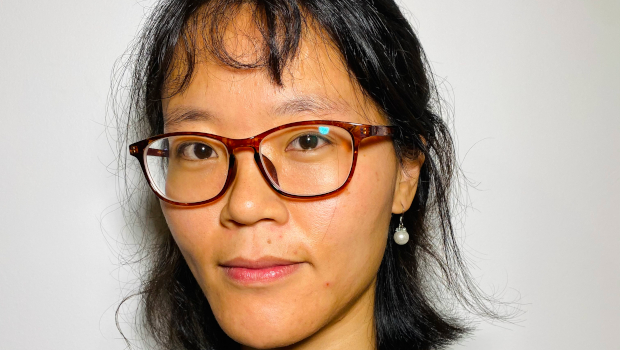
Focus on research: Prof Mimi Zhang, I-Form
Prof Mimi Zhang is a funded investigator with I-Form, Science Foundation Ireland’s research centre for advanced manufacturing. In this interview she talks about her academic journey and the power of collaboration.
Tell us about your academic journey and what brought you to Ireland. How does the culture at I-Form compare to your previous experience?
I have a BSc in mathematical statistics, and my PhD research field is industrial engineering. My PhD supervisor Prof Min Xie [from the City University of Hong Kong] was an excellent mentor. During my PhD study, I had opportunities to attend different conferences, collaborate with researchers, and visit academic institutes at an international level.
I felt I was in my element when dealing with reliability and maintenance problems in industrial engineering, and I was determined to become a scientific researcher. When a good post-doctoral opportunity was available in University of Strathclyde, Prof Xie immediately arranged my viva, even though I had a year left before the expected graduation date.
My post-doctoral research field is operations research, a valuable experience that builds my expertise in optimisation algorithms. When Trinity College Dublin advertised an assistant professor position in the School of Computer Science & Statistics, I knew it was perfect for me.
When I became a funded investigator of I-Form, I was an early-career researcher, and my scientific productivity was hugely affected by the caring responsibility and adaptation to online teaching. As an academic staff member, you work pretty much for yourself and lack a sense of belonging. It’s a completely different experience as being a funded investigator in I-Form, where you collaborate with others tackling challenges in emerging and important areas and deliver cutting-edge interdisciplinary research from the interfaces of engineering, materials science, statistics, and computer science. More important to me is that the centre is well managed and provides all kinds of support. I even asked our grants manager Sophie O’Kelly for suggestions on my funding proposal.
Your work looks at anomaly detection. Take us through what that entails.
Anomaly detection is a machine learning area where the objective is to detect rare items, events, or observations. One common application field is fraud detection. In the old days, quality control in manufacturing was done at the end of the production process, only catching defects after the fact. Now with the advancement in the sensor technology, we are able to monitor the production process continuously and detect abnormal data points (which do not follow the collective common pattern) in the streaming sensor data, automatically telling which products have defects. We can go further to build a closed-loop or human-in-the-loop feedback system that, once an abnormal event is detected, will automatically change its parameter setting with no need to shut down the production process.
Consistency is a huge challenge in manufacturing. How do you deal with minimising errors to facilitate production at scale?
Bayesian optimisation is the AI tool that helps minimise experimental errors to facilitate production at scale.
There are many control parameters/factors in the additive manufacturing workflow that will affect the quality of the printed products. Taking metal-based additive manufacturing as an example, in addition to the variation in as-received powder characteristics, building procedure and additive manufacturing systems, process control parameters such as laser power, laser speed, layer thickness, etc., all affect the thermal history during fabrication.
Thermal history in additive manufacturing process then affects surface roughness and microstructural, and consequently mechanical behaviour of fabricated parts. If you have three control parameters, and each parameter can take three different values, then you can simply test all the 27 combinations to find the optimal combination. However, this is impossible for a design problem that has many control parameters, each with many levels. We need an AI tool that helps us quickly decide the optimal design in the high-dimensional design space.
Bayesian optimisation is a methodology for adaptive experimental design. It is able to explore a large design space using only a small number of experimental trials.
You recently worked on a project involving biomedical scaffolds with RCSI and Dr Michael Monaghan. Do you see a lot of your work having biomedical applications and how did you enjoy the experience of working across sectors?
Yes, there are already a lot of applications and there will be even more, in biology, (bio)chemistry, medical science, psychology, etc. The data that we collect today, eg images, are much more complex and bigger than the traditional tabular data. Consequently, scientific research is increasingly relying on multidisciplinary collaborations to address complex real-world problems. One of my research topics is functional data clustering, and functional data are ubiquitous in biochemistry, genetics, biology, etc.
It was interesting, but not surprising, to find that Michael has similar data analysis and operations research problems as those we have in I-Form. A main driving force behind statistics and machine learning is the format of the data. For example, the fields of time series analysis, trajectory data analysis and spatio-temporal data analysis are all ‘data-driven’ fields. It was fortunate for me to collaborate with excellent people on emerging technologies, which broadens my perspective on data and motivates me to conduct innovative research.
What emerging technologies do you think will have a defining influence on the coming years?
It’s a million-dollar question. There are many fascinating research areas. I always wish I could do another PhD in any engineering field, like immunology or genetics. In the short term, I do feel advancements in energy storage are urgently needed.







Subscribers 0
Fans 0
Followers 0
Followers